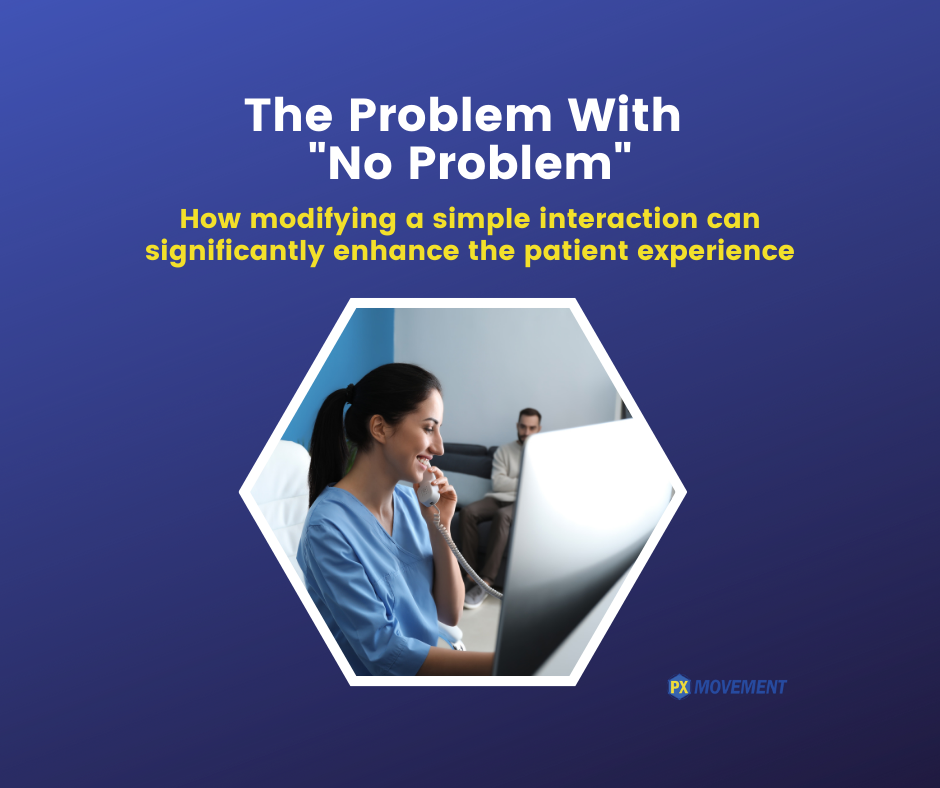Have you ever felt odd when, after thanking someone during an encounter, they respond with, “no problem”? If so, your reaction is understandable.
This phrase, which has become all too common in business settings, is problematic. Turns out this statement – offered reflexively by waiters, cashiers, hotel clerks, and many front-line employees – is a form of poor etiquette. Many of us have become immune to the point where we just accept it as a polite acknowledgment.
This shouldn’t be the case. Especially in your medical practice. Here’s why & how an alternative response can dramatically improve the patient experience.
A Lesson From Ritz-Carlton on Interacting With Guests
You won’t hear this phrase used ever at a Ritz-Carlton hotel. Their brand was built in the 1980s through outstanding customer service training. Employees were taught to use specific phrases, including “my pleasure” when interacting with guests.
While that worked well at Ritz-Carlton, it too has become common to the point of misuse. Are you impressed when the Chick-Fil-A drive-thru person says “my pleasure” after handing over your food? Probably not.
Dig deeper on this topic, and you will find arguments that language is a generational thing. “My pleasure” is too formal and can be construed as insincere. “No problem” can be taken more positively than a basic “you’re welcome.” As a baby boomer, I will need to consult my kids on this one. Hopefully, they won’t roll their eyes with that “OK boomer” expression on their faces.
3 Ways to Help Employees Elevate Patient Interactions
Here are 3 thoughts to consider as you teach and train your front-line employees in their encounters with patients.
1. Use Language That Reinforces a Positive Encounter
Another issue I have with “no problem” is It frames the encounter using negative language, while also subtly implying that this customer or other customers in the past may have caused a problem (ie, a negative encounter).
2. Strive for Authentic Language
While not giving in the latest slang or catchphrase, do provide your front-line employees the latitude to interact in ways that are both respectful and true to who they are. It’s okay that a 25-year-old and a 65-year-old respond to “thank you” using different language.
3. Remember That Words Matter
As a surgeon, Dan Durrie has been preaching to his ophthalmic colleagues that words matter when speaking to patients about their vision and the technology available to improve it. Avoiding language that confuses patients and replacing it with terms and phrases that are easily understood is key to a better patient experience. That same thought and care should be used through the ENTIRE interaction, not just the consultation.

